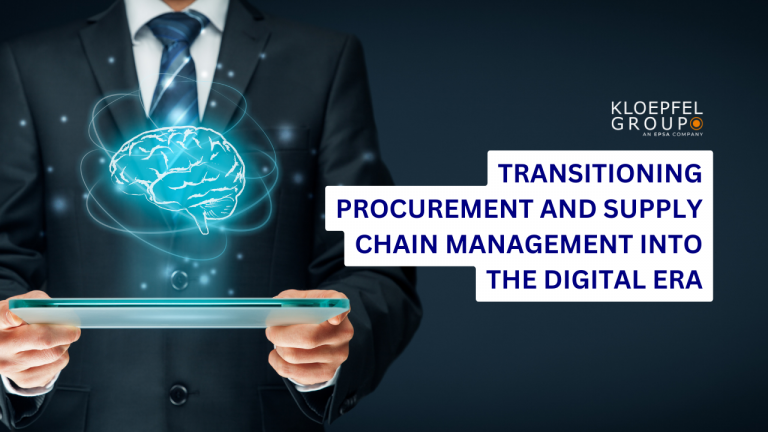Transitioning Procurement and Supply Chain Management into the Digital Era
In today’s business world, digital technologies are indispensable in procurement and supply chain management. However, it’s not enough to introduce new tools here and there. Digitizing procurement requires a holistic transformation that engages people.
Digital technologies like AI, machine learning, and Big Data significantly enhance process efficiency and effectiveness. They enable transparency through precise real-time data analysis and improve supplier and risk management.
The challenge in implementing these novel key technologies lies in integrating them into existing processes and structures of a company. A successful digital transformation requires not only technical expertise but also a fundamental understanding of the business strategy.
To truly leverage the benefits of digital technologies, companies must rethink and adapt their procurement strategies. It requires a new digital (error) culture to foster innovation. Employees need to be trained and sensitized accordingly. Only those who understand AI and its counterparts are able to rethink procurement and supply chain management and elevate them to a new level.
Technology requires intuition, empathy, and experience
While AI and machine learning revolutionize workflows, the intuition, empathy, and experience of users remain indispensable.
AI and machine learning revolutionize workflows through complex visualized data analysis and automated processes. However, human expertise remains essential. The creativity, ethics, and critical thinking of humans cannot be replaced by AI and machine learning.
A good example is supplier management. While AI systems analyze supplier performance data, the purchaser maintains relationships with suppliers based on this data and negotiates deals. This is something AI and machine learning cannot do.
Only when humans and machines work together in procurement and supply chain management new possibilities can be realized, often beyond current imagination. AI helps identify patterns and trends, greatly assisting purchasers and supply chain managers in optimizing their procurement and supply chain strategies. While tools analyze data, humans interpret the results and weigh risks and opportunities.
The challenge is to find a balance between technological efficiency and human judgment. It is not enough to master the latest technologies; it is equally important to consider the consequences of decisions, including ethical aspects.
Change management with a culture of embracing mistakes
The successful transition to digital procurement processes requires effective and transparent change management. It is important to establish a culture that values both innovation and proven practices. This can only be achieved if the cross-departmental transformation strategy is developed collaboratively with employees, including their ideas and doubts. Leaders play a crucial role by serving as role models for the adoption of new tools. Additionally, the transformation should be continuously monitored and adjusted based on metrics and feedback from stakeholders.
Implementation of the transformation
At the beginning of the transformation, take a bird’s-eye view of your current processes. Ask questions such as:
- How often do your colleagues pick up the phone?
- How often do you print something out or convert it into a PDF to send it via email?
- How often do purchase orders arrive via email, phone, or hand-written notes?
Ask your employees to keep track of their activities for a few days. Bullet points are sufficient. This will give you a better overview.
It’s also helpful to divide purchasing into different functions, starting from operational procurement to contract and supplier management.
After the analysis, act. It’s important to note: There is no one-size-fits-all roadmap for digitalizing companies. Instead, choose digital solutions tailored to your company’s specific needs and processes.
In general, you have the choice between solutions for individual procurement functions, such as an eProcurement system or a digital solution for supplier management, and holistic solutions that interconnect all procurement processes. The advantage of modular holistic solutions is that you can digitize your processes gradually.
Tip: Sometimes, even small digitalization can make a big difference, such as when colleagues can record goods receipts directly on their smartphones.
If you’re unsure where to start or lack capacity, don’t hesitate to consult our experts.
Author:

Contact:
Kloepfel Group
Christopher Willson
Tel.: 0211 941 984 33 | Mail: rendite@kloepfel-consulting.com


